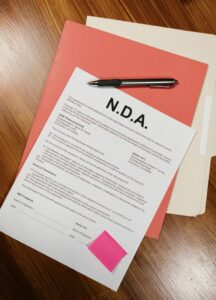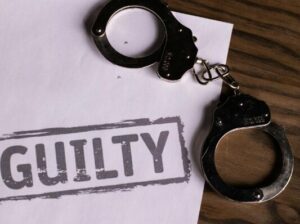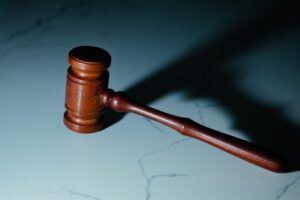False and damaging statements don’t just hurt reputations; they can derail businesses, drive away clients, and affect contracts and partnerships. When defamation spreads online, the damage compounds quickly. One misleading review, blog post, or viral accusation can spiral into a crisis affecting business operations, customer trust, and even licensing status. Understanding the legal tools available for online business defamation is not just helpful; it’s sometimes the only way to contain the damage.
Online business defamation occurs when someone publishes false and harmful statements about a company or its representatives on public platforms. These statements must be demonstrably untrue and capable of being proven false. For legal purposes, opinion is protected; factually incorrect accusations are not. If those statements impact a business’s ability to generate revenue, hire, contract, or maintain relationships, legal action may be even more desirable.
Understanding what qualifies as defamation and when to consult a business litigation attorney can help protect a company’s legal standing, financial future, and brand credibility.
Defamation vs. Negative Feedback: Understanding the Difference
Many businesses fear that negative reviews will automatically trigger legal problems. But criticism, even if harsh, does not qualify as defamation unless it crosses into falsehood. For example, saying “the staff was rude” is an opinion. Saying “this company committed fraud” without evidence may rise to the level of defamation.
To qualify legally, a defamatory statement must meet the following conditions:
- It is false.
- It is published or communicated to a third party.
- It is not protected opinion.
- It results in harm, such as lost contracts, client withdrawals, or reputational damage.
- In some cases, actual malice must be proven (especially for public figures or large brands).
Online platforms have made these situations more complicated. Posts on Yelp, Reddit, Google Reviews, LinkedIn, or anonymous blogs can spread quickly. In such cases, a trial attorney in Alexandria Fairfax or Alexandria, Virginia can assess whether the statement rises to the level of defamation under Virginia law.
Common Sources of Online Business Defamation
Online defamation doesn’t just come from angry customers. In many cases, the source of a damaging statement may be:
- Disgruntled former employees
- Competing businesses
- Anonymous users or trolls
- Former vendors or partners
Each source presents a different legal route. Statements made by ex-employees, for example, may require review of non-disclosure agreements and employment contracts. Competitor defamation could fall under unfair competition claims. And anonymous posters may require subpoenas to unmask identities, something a litigation attorney or a business lawyer can facilitate.
How Defamation Harms Business Operations
The impact of online business defamation extends far beyond public embarrassment. In many cases, companies face:
- Loss of existing clients or contracts
- Withdrawal of potential deals
- Negative press or media coverage
- Harm to SEO and online reputation
- Devaluation of a business prior to sale or merger
- Employee morale issues and retention problems
In the real estate development sector, for instance, a defamatory claim about fraudulent dealings or mishandling of funds can lead to a dispute and investigation. In such situations, it becomes necessary to work with a real estate attorney who understands both business litigation and industry-specific concerns.
What Legal Options Exist for Businesses?
Once it’s established that a published statement is false and harmful, a range of legal remedies becomes available. These may include:
- Cease-and-desist letters
- Requests for content removal from platforms
- Court-ordered retractions or takedowns
- Monetary damages for business loss
- Injunctions to prevent future defamatory statements
Because legal standards differ slightly between jurisdictions, a business attorney or a litigation attorney will assess whether to file in Virginia, Washington, DC or some other jurisdiction, based on where the damage occurred and where the statement was published.
If the defamatory content was posted on a third-party platform (like Google or Yelp), it’s important to understand that those platforms are generally shielded from liability under Section 230 of the Communications Decency Act. However, the person who authored the post can still be held responsible. In litigation, a business litigation attorney can issue subpoenas and, in certain cases, unmask anonymous posters.
When Is It Time to Get Legal Help?
Timing is critical. The longer a defamatory statement remains online, the more likely it is to cause lasting damage. Businesses should seek legal consultation when:
- The statement is clearly false and harmful
- It’s been posted publicly (blog, social media, forum, etc.)
- The business has experienced a measurable financial impact
- Prior requests to remove the content have been ignored
- There’s potential harm to licensing, accreditation, or vendor relationships
Early intervention allows counsel to preserve evidence, assess jurisdiction, and issue immediate notices. Whether dealing with a competitor in Tysons or an anonymous source in Arlington, working with an experienced business lawyer helps assemble the case from the start.
Online Defamation and Real Estate Businesses
For professionals in real estate, online defamation can be especially damaging. Buyers and sellers rely heavily on public reputation when choosing firms or agents. One false review can shift market perception. A claim of fraud or misrepresentation, even if unfounded, can affect referrals and broker relationships.
That’s where consulting with a real estate attorney becomes essential. These attorneys understand both defamation laws and the professional relationships that are involved in real estate transactions. They can also assess whether the defamation constitutes business interference or breaches industry-specific legal standards.
If an online statement falsely accuses a brokerage of discrimination, financial wrongdoing, or misrepresentation, it may trigger liability, regulatory review, or both. A real estate litigation attorney who understands defamation or a litigation attorney can respond promptly with legal strategies designed to limit reputational and operational fallout, whether you are in Northern Virginia or Washington, DC.
Business Startups and Reputation Risk
Startups face unique challenges when hit with defamatory claims online. Without established reputations, even one false accusation can stall funding, discourage hiring, or ruin investor confidence. In many cases, the founder’s name is closely tied to the company brand—making defamation both personal and professional.
A startup attorney or a business transactions lawyer can guide new companies through reputation protection strategies. These may include media response protocols, defamation monitoring, internal review of communications, and rapid legal interventions. Newer companies especially benefit from legal teams that understand both litigation and reputational defense.
Steps to Take Before Filing a Lawsuit
Before pursuing a legal claim, it’s important to prepare. Filing prematurely can lead to higher costs, procedural delays, or dismissal. The following steps help strengthen a potential defamation case:
- Document Everything
Save screenshots, timestamps, URLs, and any interaction related to the defamatory content. If the content was shared, forwarded, or reposted, capture those instances as well. - Identify the Source (If Possible)
While many online posts are anonymous, IP tracking or platform subpoenas may help identify the poster. A litigation attorneyor a trial attorney in Alexandria can assist with this process. - Assess the Impact
Was there a decline in website traffic, client inquiries, or completed sales? Businesses should gather financial data showing losses tied to the timing of the defamation. - Review Internal Communications
If the defamation involves claims about business conduct or employee behavior, internal audits or HR records may become relevant. - Engage Legal Counsel
Whether dealing with real estate, employment, or startup concerns, working with a professional business attorneymeans that any legal action is aligned with jurisdictional requirements and based on sound evidence.
Reputation Management After a Defamatory Incident
Even if a post is removed or a retraction is issued, reputational harm may linger. Ongoing risk mitigation is key, especially for businesses in regulated sectors like real estate or finance.
Legal teams can recommend proactive steps such as:
- Press statements and clarification posts
- Third-party reputation monitoring
- Google Alerts and SEO updates
- Updates to contracts, NDAs, or social media policies
For real estate firms, false allegations can scare off both buyers and lenders. That’s why a real estate attorney may recommend filing industry disclosures to protect licensure or proactively alert regulatory boards about resolved disputes.
For startups and corporate entities, protecting leadership visibility and brand messaging is essential. A business law consultation can include insights into strategies for managing negative publicity while protecting legal rights.
Legal Limits: What Defamation Laws Can, and Can’t, Do
It’s important to understand the scope of legal remedies in a defamation case. While the law can provide monetary damages and sometimes injunctions, it cannot always “erase” content from the internet. Nor can it prevent individuals from stating opinions that are not factually provable.
However, the law is powerful when falsehoods are presented as facts. In those cases, a business litigation attorney or a trial attorney can help pursue claims that restore lost business, deter further attacks, and clear the public record.
Remember: Public figures and larger corporations may have to meet a higher standard (such as proving “actual malice”) than private individuals or small businesses. Having an experienced business lawyer versed in defamation law on board means your legal claim is appropriately articulated to meet these thresholds.

Protecting Your Reputation with Jabaly Law
Defamation isn’t just a personal insult; it’s a legal matter with real consequences for business performance, reputation, and regulatory standing. Whether your company has been falsely accused of misconduct or your real estate brokerage is facing an online smear campaign, having the right legal strategy can make all the difference.
Jabaly Law brings years of experience in business litigation and defamation defense across Northern Virginia and Washington, DC. With offices in Alexandria, Fairfax, and Washington, DC, our firm offers personalized legal representation for companies of all sizes, including real estate professionals, tech startups, and established commercial firms.
Whether you need a real estate attorney, a business lawyer, or a litigation attorney in Fairfax, Jabaly Law offers practical and strategic legal counsel with a focus on resolution and protection.
Ready to assess your case or prepare a legal strategy? Schedule a confidential consultation with us today to protect your business and restore your reputation.




















